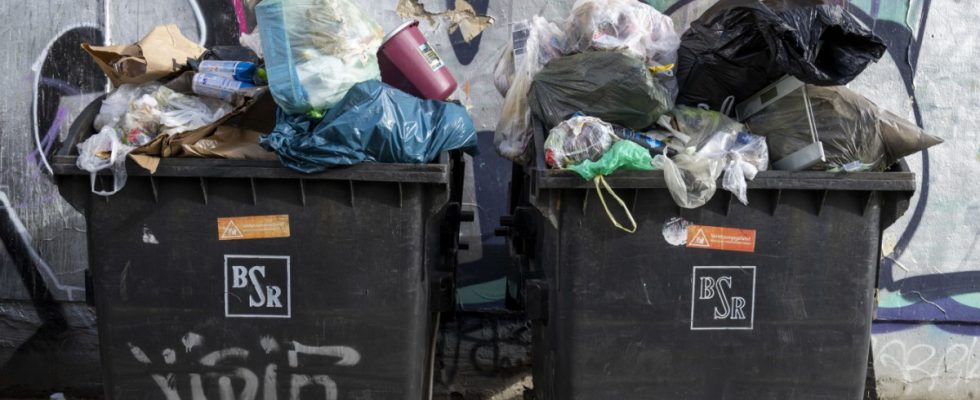Garbage has long been an issue that moves people. On the small level: Where to put the empty pizza box – residual waste or paper bin? And as a major political question: What should this country do with its decline in prosperity without polluting the environment?
Recently, the garbage has come even more into focus. As a climate change problem, because rubbish is burned and shipped and the production of all the kinda thrown away stuff creates CO2. In addition, it is about raw materials and, to that extent, about an instrument of industrial policy. Because there are many materials in garbage that would be useful and would otherwise have to be imported from countries like China or Russia at great expense – and thus increase dependencies. Especially for a country like Germany, which has comparatively few raw material deposits of its own, it is important not to simply waste the coveted ingredients in the garbage.
Every year the world extracts more than 100 billion tons of raw materials. Just 7.2 percent of that is reused, according to this year’s Circularity Gap Report, a study by circular economy activist group Circle Economy. The number is falling year after year because raw material extraction is increasing but recycling efforts are not keeping pace.
But so that more can be recycled, politicians must set other incentives and develop a uniform recycling management strategy, demanded industrial companies, waste management and recycling management consultants at the SZ sustainability summit on Tuesday in Munich. Henning Wilts from the Wuppertal Institute for Climate, Environment and Energy criticizes that German politics, unlike, for example, in the neighboring country of the Netherlands, which also has few raw materials, has many different programs and plans with different indicators and goals. “This has also meant that the industry has not invested enough in the circular economy.” He is currently developing such a strategy with other industry representatives. The economy needs planning security – after all, it’s about billions that would have to flow into recycling plants and recyclable materials. “It’s about making German industry competitive in the long term,” says Wilts.
Bidding competition for used PET bottles prevents recycling
The industry itself is interested in recycled materials. Anyone who manufactures goods from recycled resources reduces the ecological footprint and uses expensive resources more efficiently – all of which is increasingly popular with customers, employees and investors. But the goal is not so easy to reach. As far as PET plastic bottles are concerned, for example, says John Galvin, the head of Germany at Coca-Cola, the beverage company would like a closed-loop system. But there is a bidding competition for the coveted plastic, in which clothing manufacturers such as Nike are driving up the prices for making clothes or backpacks from the bottles.
The management consultancy BCG also determined in a study from 2020 that the circular economy is not only of great importance for individual companies, but for the entire economy. In Germany alone, BCG calculates that it has a potential of 140 to 200 billion euros in annual economic output, which would be up to five percent of gross domestic product.
It is the task of politics to set incentives in such a way that it is not necessarily cheaper to produce new material than to recycle old ones because collection and cleaning are so expensive, said self-employed waste consultant and packaging engineer Carolina Schweig at the SZ sustainability summit . “We want to get rid of the waste, but we don’t want to use it, that’s where the inefficiency comes from.” More commitment is needed with reusable packaging, she demands, for example it would help if bottles were more standardized.
According to the Federal Statistical Office, 411.5 million tons of waste were disposed of in Germany in 2021, 2.5 million tons less than in the first Corona year 2020. The economy, which was weaker due to Corona, played a role in this. In the households themselves, on the other hand, people threw away more in 2021. According to the Federal Statistical Office, 483 kilograms of household waste were collected per capita in 2021, six kilograms more than in 2020. There has never been so much household waste since the survey began in 2004.
People in Germany want more recycling and want to make a contribution, said Wilts. However, it is often very difficult to identify which packaging is really more sustainable than another. “It must also be possible to determine this without studying engineering.” A reliable and uniform German or European label that explains whether the goods or packaging are made of recyclable or reusable materials would help.

